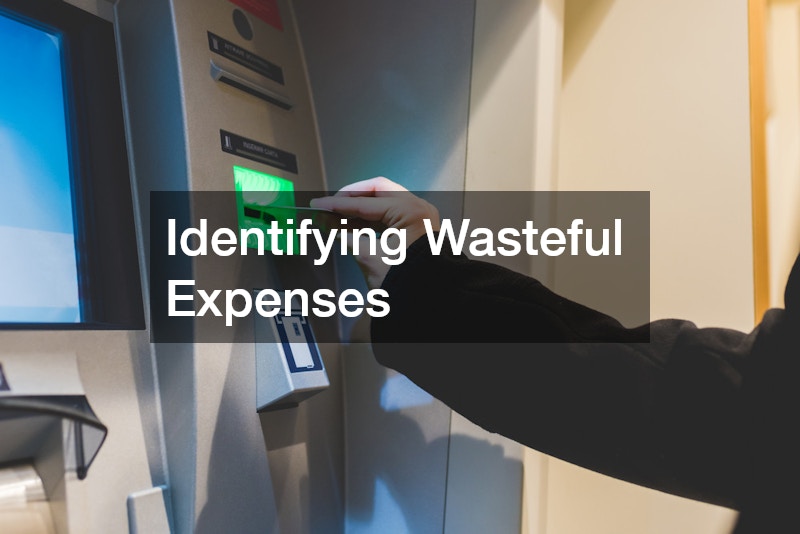Your First Financial Hack
Welcome to your step-by-step guide to achieving financial freedom. Budgeting doesn’t have to be restrictive or complicated—in fact, it can be one of the most empowering tools in your financial arsenal. With the right approach and a financial hack for every occasion, you can take control of your money, reduce stress, and work toward the life you’ve always envisioned.
In this article, we’ll explore key strategies to help you hack your budget. These aren’t gimmicks, but smart, actionable steps you can take to optimize your spending, boost savings, and streamline your financial habits. Whether you’re new to budgeting or looking to refresh your approach, these insights will guide you. Financial freedom doesn’t just mean having more money—it means having more choices. When you’re not weighed down by debt, living paycheck to paycheck, or wondering where your money goes each month, you can focus on what truly matters.
Budget Hacking and How It Can Benefit You
Think of budget hacking as applying accountant-level insight to your personal finances. Just as a skilled accountant identifies inefficiencies in a company’s financials, you can pinpoint and eliminate wasteful habits in your own spending. This makes your money work smarter—not just harder—for you.
Budget hacking involves taking deliberate control over where each dollar goes. A powerful example is the 50/30/20 rule: allocate 50% of income to needs, 30% to wants, and 20% to savings or debt reduction. This framework offers both structure and flexibility, making it ideal for beginners and seasoned budgeters alike.
A commonly overlooked financial hack is reassessing your mortgage loan as part of your budget optimization. Many homeowners stick with the same loan terms for years without evaluating whether refinancing could save them money. By regularly reviewing your mortgage, you may uncover opportunities to lower your monthly payments or reduce your interest rate—freeing up funds for other financial goals.
Identifying Wasteful Expenses

Wasteful expenses are often the silent killers of financial progress. They’re the auto-renewed subscriptions, the weekly impulse buys, the streaming services you never watch. These seemingly small charges add up quickly, quietly draining your budget of potential savings or debt payments.
One simple way to identify these money leaks is to perform a bank statement audit. Go back three months and highlight every recurring or non-essential expense. Then ask yourself: Did this add value to my life? If the answer is no, it’s time to cancel, cut, or replace it.
A home mortgage broker can provide an expert evaluation of your current mortgage terms and explore whether refinancing could save you money. Many people don’t realize they’re paying more than necessary on their home loan. By partnering with a broker, you might unlock lower interest rates or better repayment options, freeing up funds to strengthen your overall budget.
The Best Tools for Budget Tracking
Modern budgeting tools have revolutionized how we manage money. Gone are the days of tracking spending with notebooks or spreadsheets (unless that’s your thing). Today, apps like YNAB, Mint, PocketGuard, and EveryDollar make it easier than ever to understand and control your finances.
These financial hacks offer a range of features, including transaction tracking, goal setting, budgeting categories, and visual spending analysis. You can set alerts, receive summaries, and even project future trends. A valuable financial hack is to link these tools to all your bank accounts, credit cards, and investments. By consolidating your financial picture in one dashboard, you gain a clear and holistic view of your habits.
Boost Your Savings Without Compromising Lifestyle

It’s a myth that saving money requires extreme frugality. The truth is, with the right strategies, you can enjoy life while still setting aside substantial savings. Start with automating deposits to a high-yield savings account. Out of sight often means out of mind—and that’s a good thing for savings.
When unexpected expenses arise, many people resort to high-interest credit cards, which can quickly derail savings goals. Instead, consider using a mobile lending service as a more affordable alternative for short-term cash needs. Many of these platforms offer flexible terms and lower interest rates, helping you cover urgent costs without sacrificing your financial progress.
Evaluate your spending and identify where value and cost can be balanced. For example, instead of going out for coffee daily, invest in a premium at-home setup. You maintain the experience but cut costs significantly over time. It’s about swapping, not sacrificing.
Choosing the Right Budgeting Method
Choosing a budgeting method isn’t about finding the “best” one—it’s about finding the right one for you. Different methods fit different personalities and lifestyles. From envelope systems to zero-based budgeting, your approach should reflect how you think, spend, and save.
The envelope system is great for those who prefer a tangible, cash-based approach. It involves setting aside money in labeled envelopes for each spending category. While digital now, the idea still applies. It’s a great way to limit overspending and increase awareness.
An estate attorney can also guide you in structuring budgets around asset protection, inheritance planning, or trust funding. For example, if you’re budgeting for future education or a property transfer, your method may need to account for those legal and financial obligations. Budgeting with legal foresight prevents surprises down the road.
Setting Realistic Financial Goals

Setting financial goals is the cornerstone of any successful budgeting plan. But these goals need to be realistic, clear, and attainable to be effective. A vague goal like “save money” isn’t actionable. A better version would be, “Save $5,000 for an emergency fund within 12 months,” which provides a measurable target and deadline.
The first step is identifying what’s most important to you—home ownership, retirement, travel, education, or debt freedom. Write down your top three priorities and break them into smaller milestones. This gives you a step-by-step path and prevents feeling overwhelmed by the bigger picture.
One smart financial hack is using visual goal trackers—whether in a journal, an app, or even on your fridge. Seeing your progress reinforces motivation and makes the intangible feel tangible. When you track every step, it becomes easier to stay on course, even when setbacks occur.
Align your financial goals with your personal values, including giving. Many people want to support charities but worry that it may derail their budget. Instead, treat generosity as a planned expense. Set aside a fixed amount each month and automate donations so you can support causes you care about without sacrificing stability.
Simple Tricks to Reduce Debt
Debt reduction doesn’t have to be an uphill battle filled with dread. With the right strategies and a little creativity, you can knock out balances faster and feel more in control. Start by listing all your debts, including balances, interest rates, and minimum payments. Seeing it all in one place is a crucial first step.
An extremely effective financial hack is the debt snowball method. You pay off your smallest debt first while maintaining minimum payments on the others. Once that’s gone, you roll that payment into the next smallest. It builds momentum and gives you quick psychological wins.
Alternatively, try the debt avalanche method, which targets the highest interest rate first. This saves more money in the long run but might take longer to see progress. Either method is valid; the best choice depends on your personality and what keeps you motivated.
If you need a cash infusion to tackle debt, consider selling valuables. Visiting a reputable coin dealer or collectibles buyer could turn old items into debt-crushing payments. It’s an easy way to turn underused possessions into financial freedom.
Maximize Income Through Side Hustles

Side hustles are one of the most effective tools for speeding up your financial goals. With just a few hours a week, you can generate extra income to pay off debt, build savings, or invest in your future. And with today’s digital tools, launching a side hustle is more accessible than ever.
Start by identifying your skills. Are you good at writing, designing, tutoring, driving, or organizing? There’s likely a market for your talent. Websites like Upwork, Fiverr, and Etsy connect freelancers and creators to customers, while services like Uber, DoorDash, and TaskRabbit offer flexible gig work.
A clever financial hack is to monetize hobbies. Turn photography into paid sessions, baking into catering gigs, or crafting into an online store. When you enjoy what you’re doing, it doesn’t feel like work—and it’s easier to sustain over time.
For those with an entrepreneurial spirit, one financial hack is to use a side hustle to test business ideas on a small scale. Many successful entrepreneurs started with part-time gigs. Over time, these efforts can blossom into full-scale operations that support business growth and financial independence.
Avoid Common Budgeting Mistakes
Even the most well-intentioned budgets can go off the rails if common mistakes aren’t avoided. One of the biggest pitfalls is being too rigid. Life is unpredictable, and your budget should be flexible enough to adapt to surprise expenses, fluctuating income, or unexpected opportunities.
Another frequent mistake is failing to plan for irregular expenses—those once-a-year costs like holidays, car maintenance, or school supplies. When these hit unexpectedly, they often get charged to credit cards. Avoid this by creating sinking funds for each category and contributing a small amount monthly.
Another trap is using cash or forgetting to track digital transactions. If you only track card spending but ignore cash, you’ll have blind spots. A financial hack is to use safes or lockboxes at home to stash cash for specific purposes—travel, emergencies, or fun—keeping it both visible and secure.
Don’t ignore inflation either. As prices rise, your budget needs to evolve. Reassess spending categories regularly. A grocery budget from two years ago may no longer work. Adjusting ensures that your plan remains relevant and effective.
The Benefits of Regular Financial Checkups
Just like you schedule annual doctor visits, your financial health needs regular checkups too. Monthly and quarterly reviews keep you aligned with your goals and catch problems before they become major setbacks. The habit is simple but has powerful long-term benefits. Start by reviewing your income, spending, debt, and savings every 30 days. Use this time to celebrate wins and make necessary adjustments. Did you overspend on dining out? Shift next month’s budget accordingly. Staying proactive prevents emotional or impulsive financial decisions.
A financial hack that many overlook is calculating your net worth every few months. Subtract liabilities from assets to track your overall financial health. Even if it’s slow progress, seeing that number rise over time is incredibly motivating and affirms your financial strategy. Business owners and freelancers, in particular, benefit from checkups. An entrepreneur should schedule quarterly reviews not just for taxes, but for evaluating cash flow, debt, and growth opportunities.
Consider involving a financial coach or accountant once or twice a year for a more detailed analysis. They can spot blind spots, offer tax-saving strategies, or help you restructure goals based on new opportunities. An outside perspective often leads to better decisions. Financial checkups don’t have to be long or complicated. Even 30 minutes each month can transform how you manage money. With regular care and attention, your finances will become more resilient, balanced, and capable of supporting the life you want to live.
Financial Hack Your Way to Freedom
By implementing these financial hacks, you can pave the way to not only manage your finances better but also unlock the ultimate freedom that comes with financial security. Budgeting isn’t about restriction—it’s about liberation. With the right strategies, you’ll feel empowered, not limited.
From identifying wasteful expenses to boosting your income, every one of these hacks offers a practical and proven path to success. You don’t need a high income or finance degree to get started—just a willingness to learn, adapt, and take small, consistent steps.
Remember: every smart decision compounds. Each dollar saved, debt paid, or goal achieved builds momentum toward lasting change. Whether your dream is early retirement, travel, or peace of mind, it all begins with a single, intentional step. Let these hacks be your roadmap and your inspiration. Financial freedom isn’t a distant dream—it’s something you can build starting today.
Start now. Choose one hack, one goal, or one habit to implement this week. Track your progress, adjust as needed, and stay committed. With time and persistence, financial empowerment will become your reality—and your reward.


